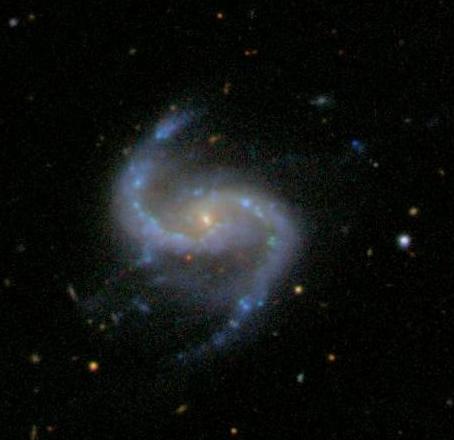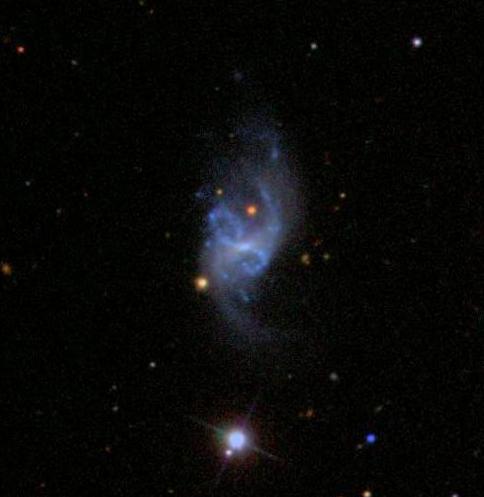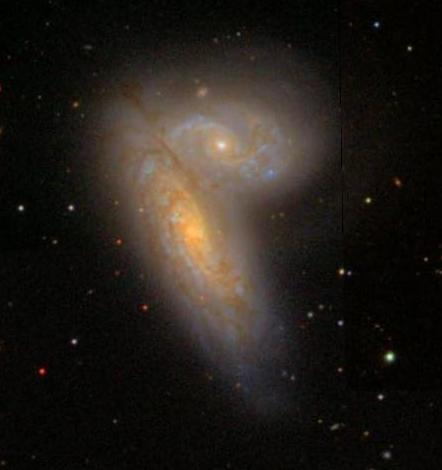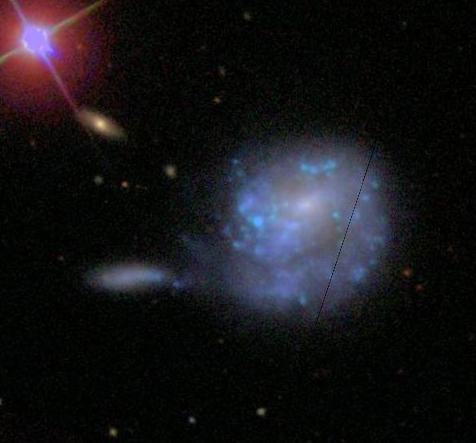
Arp 24
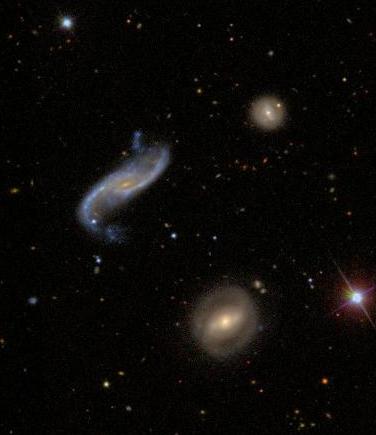
Arp 34
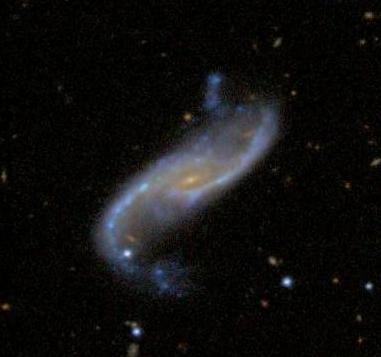
Arp 34: the northern galaxy
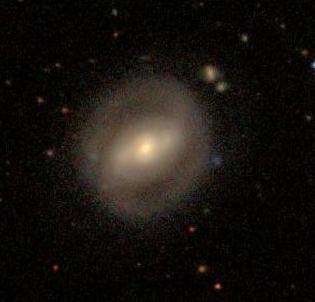
Arp 34: the southern galaxy
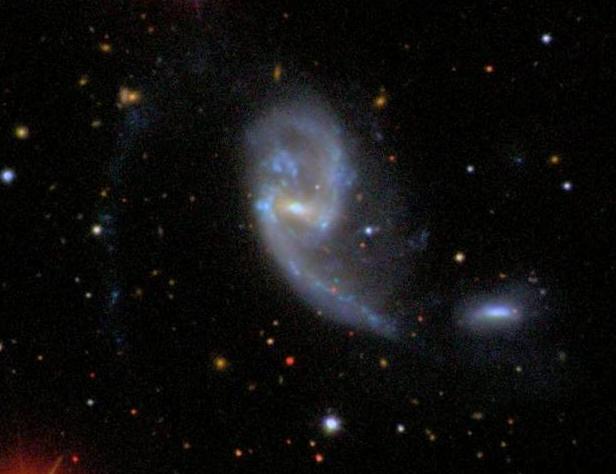
Arp 72. The long tail to the east is not really
visible in this image, except for some blue clumps far from the main disk.
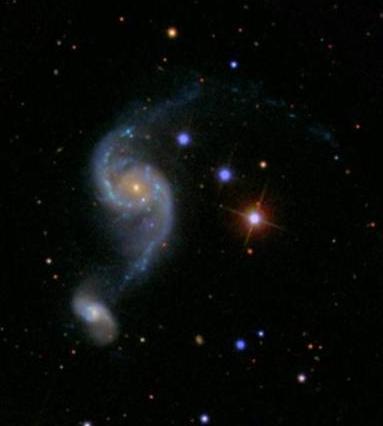
Arp 82
For more images of Arp 82 at other wavelengths,
click
here.
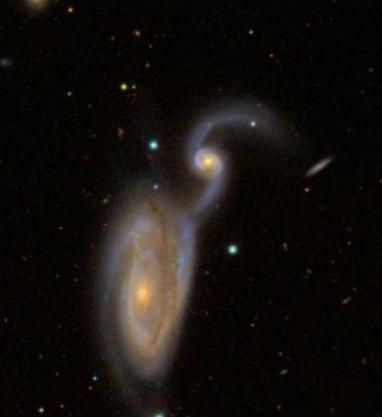
Arp 84
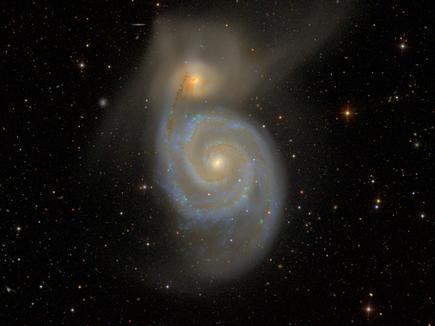
Arp 85 (M51)
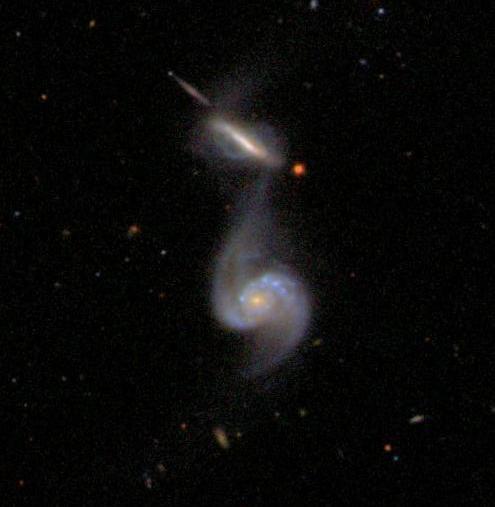
Arp 87
To see an Hubble Telescope image of
Arp 87, click
here.
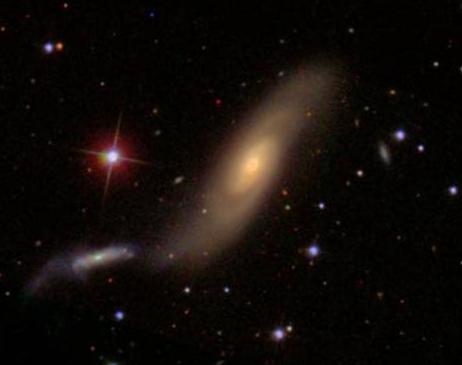
Arp 89
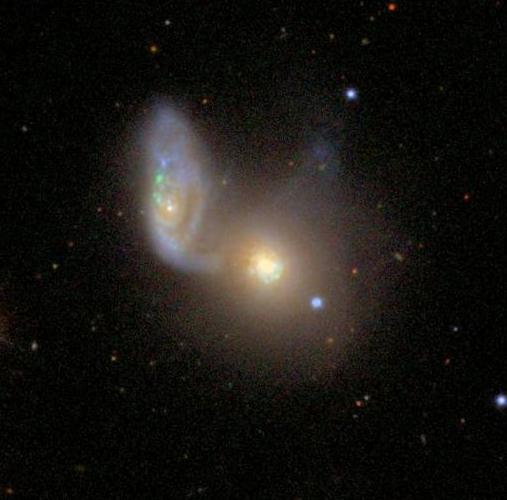
Arp 91. North is up and east to the left.
There appears to be a short blue-ish tail to the
northwest of the western galaxy. This may be caused by
star formation in gas that
flowed from the eastern galaxy (the bluer spiral), to the
western elliptical-like galaxy (w/ a yellower color), and overshot
its target (as in the northern tail of
Arp 285. Alternatively, it may be a tidal tail of the spiral
galaxy that happens to be behind the elliptical.
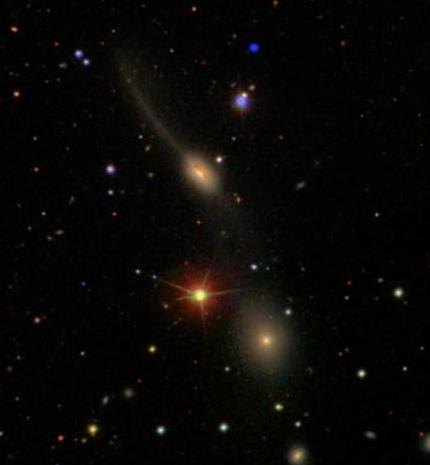
Arp 101
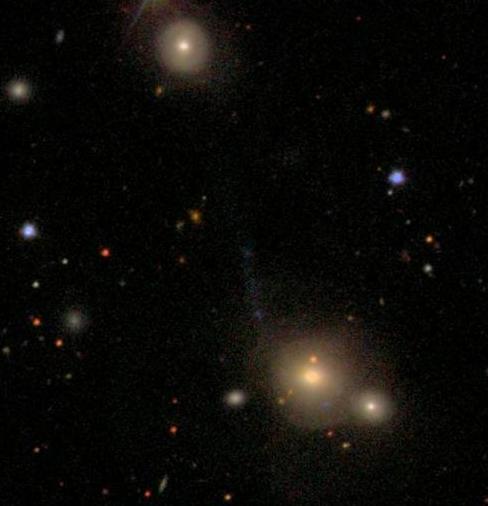
Arp 103
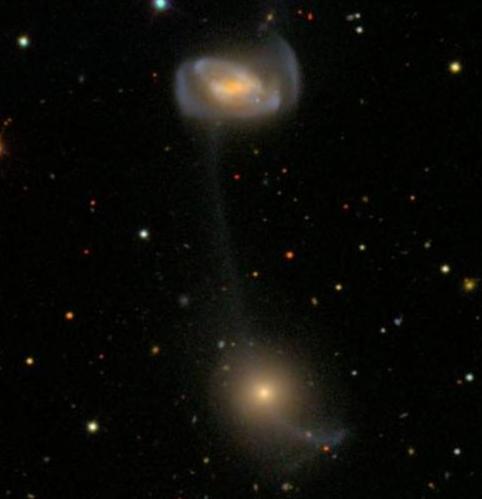
Arp 104
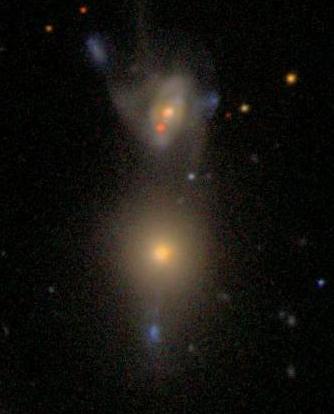
Arp 105
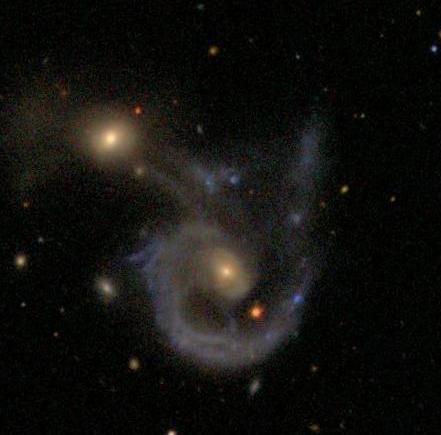
Arp 107
For more images of Arp 107 at other wavelengths,
click
here.
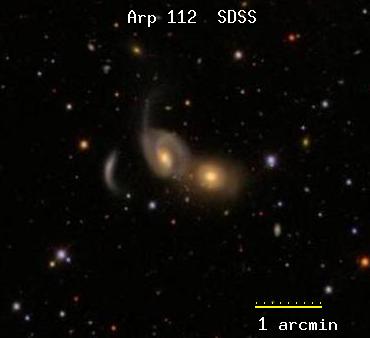
Arp 112
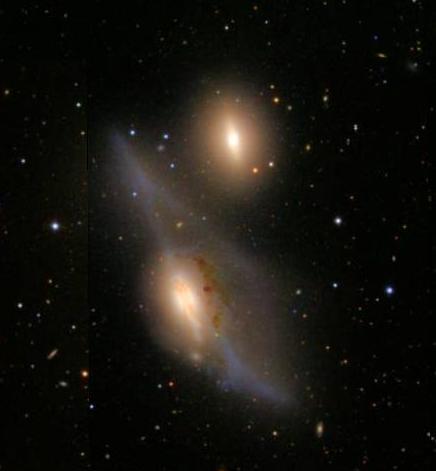
Arp 120
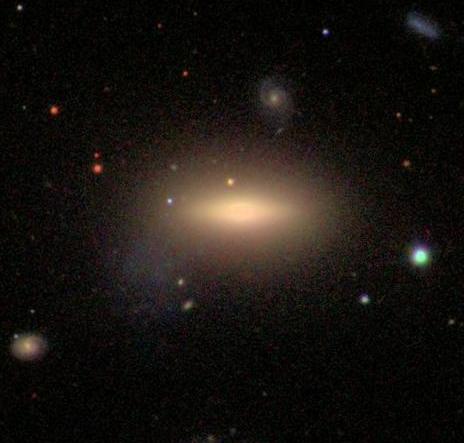
Arp 136
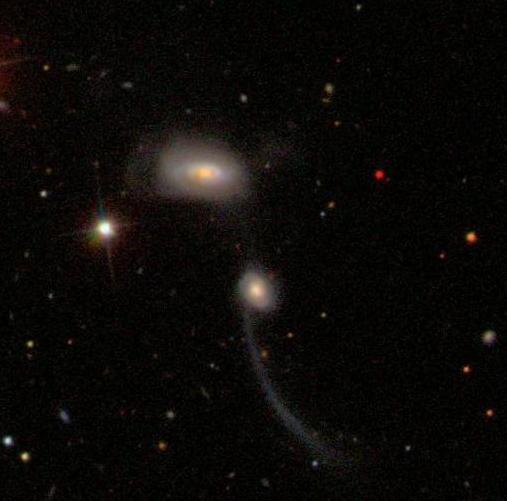
Arp 173
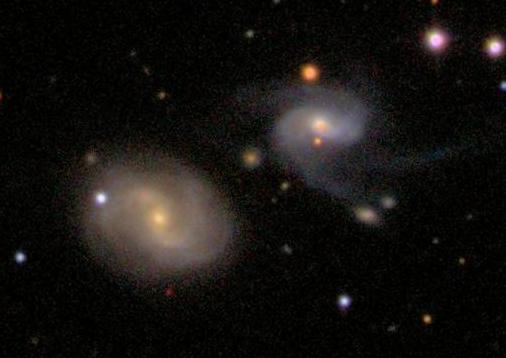
Arp 181
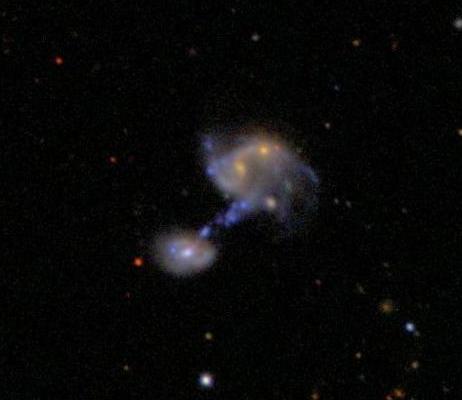
Arp 194. Notice the bright blue stars in the bridge.
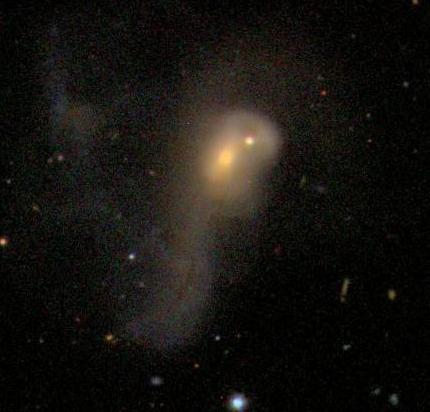
Arp 192
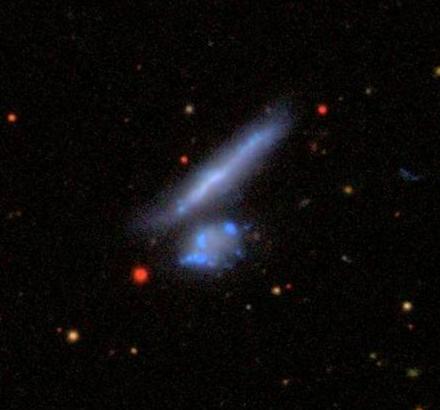
Arp 202
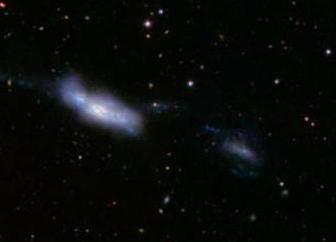
Arp 205
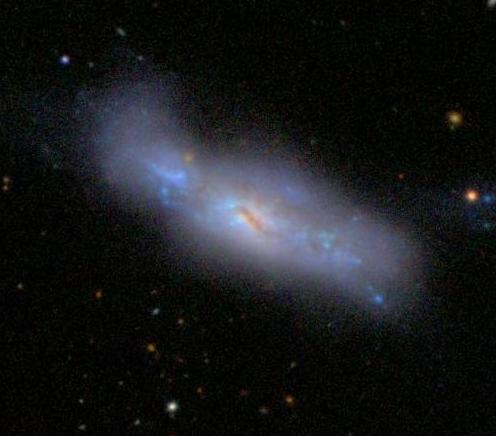
Arp 205: eastern galaxy, close-up
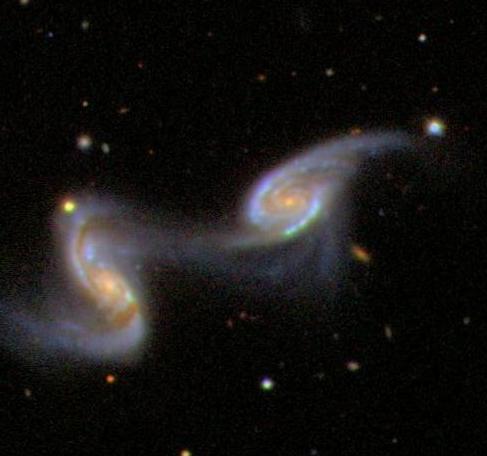
Arp 240
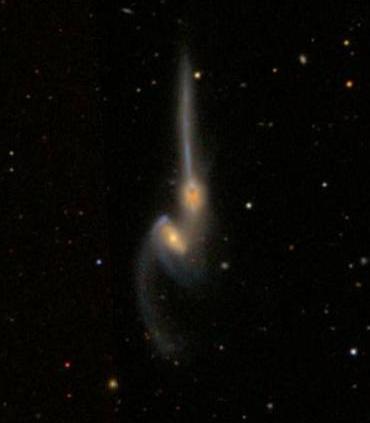
Arp 242
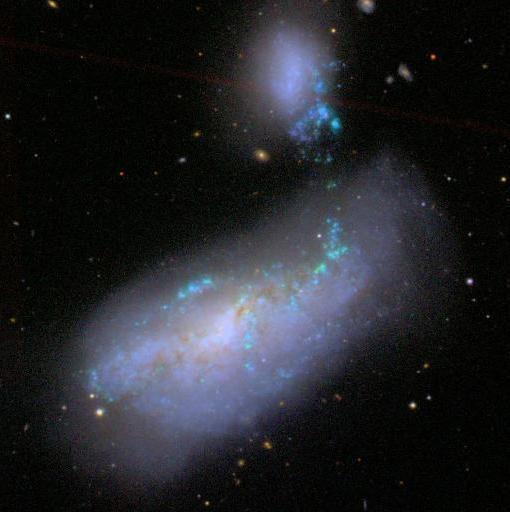
Arp 269. North is up and east to the left.
Notice the bright blue stars off-center in the northern galaxy.
These may have formed from gas accreted from the companion.
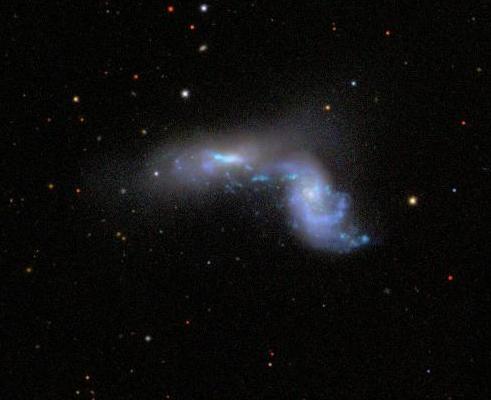
Arp 270
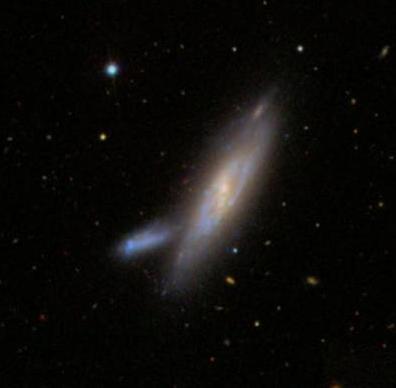
Arp 280
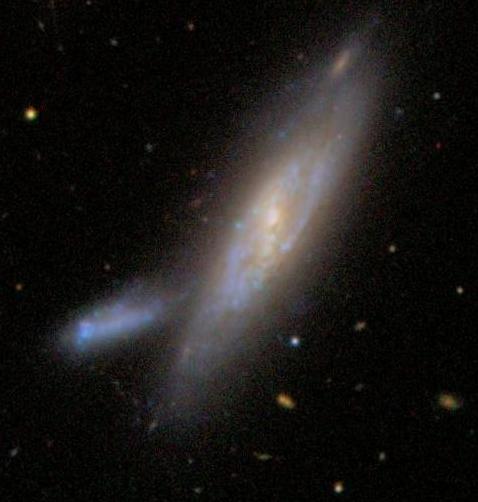
Arp 280: Closer view
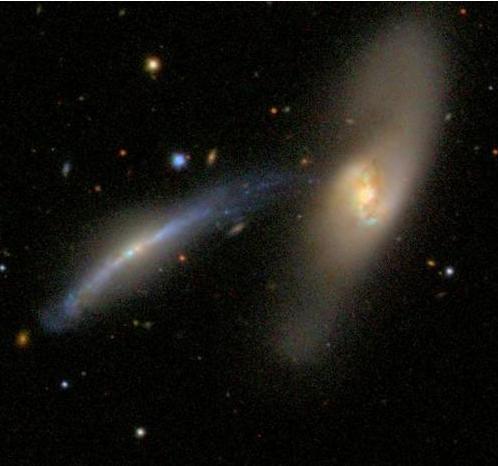
Arp 283
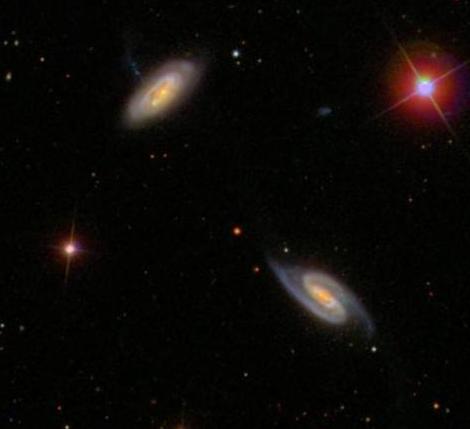
Arp 285
For more images of Arp 285 at other
wavelengths, click
here.
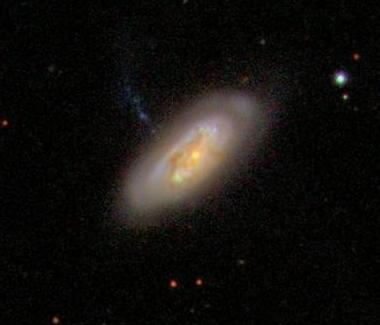
Arp 285: Northern galaxy (NGC 2856)
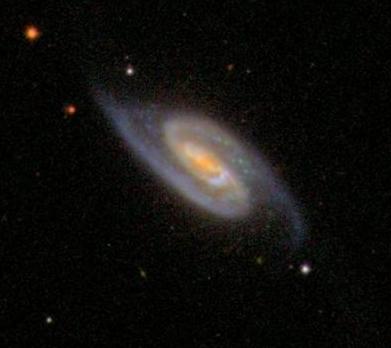
Arp 285: Southern galaxy (NGC 2854)
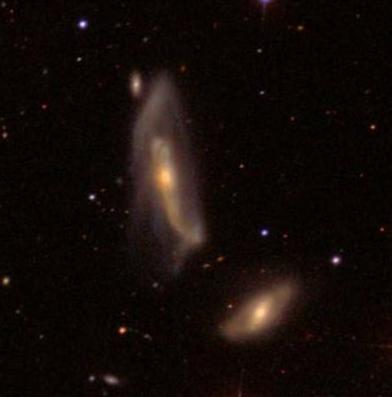
Arp 290
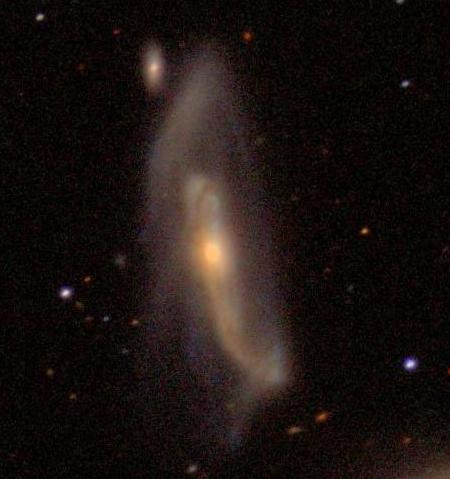
Arp 290: Northern galaxy closer
view.
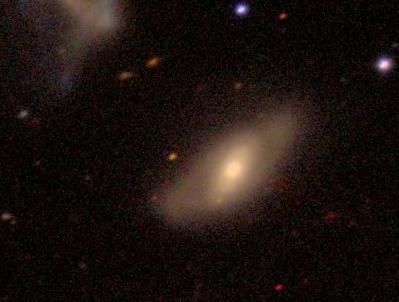
Arp 290: Southern galaxy closer view.
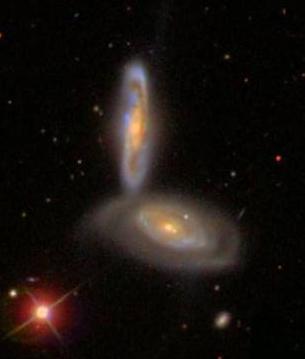
Arp 294
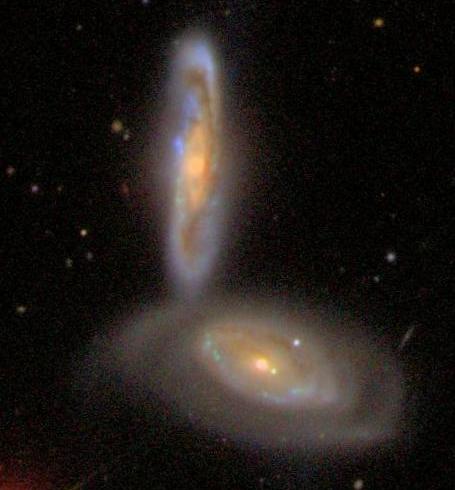
Arp 294: Closer view
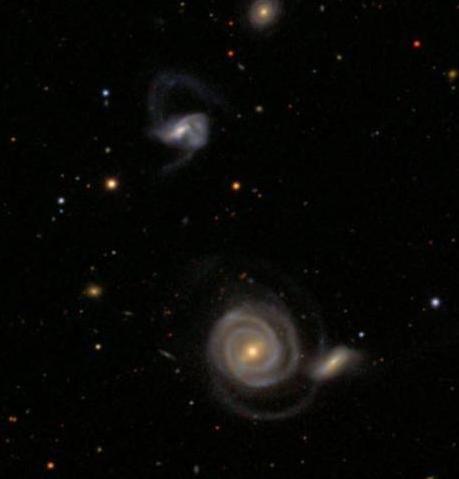
Arp 297. Note that this is two separate unrelated
pairs at different redshifts, with the pair to the north
being at a higher redshift.
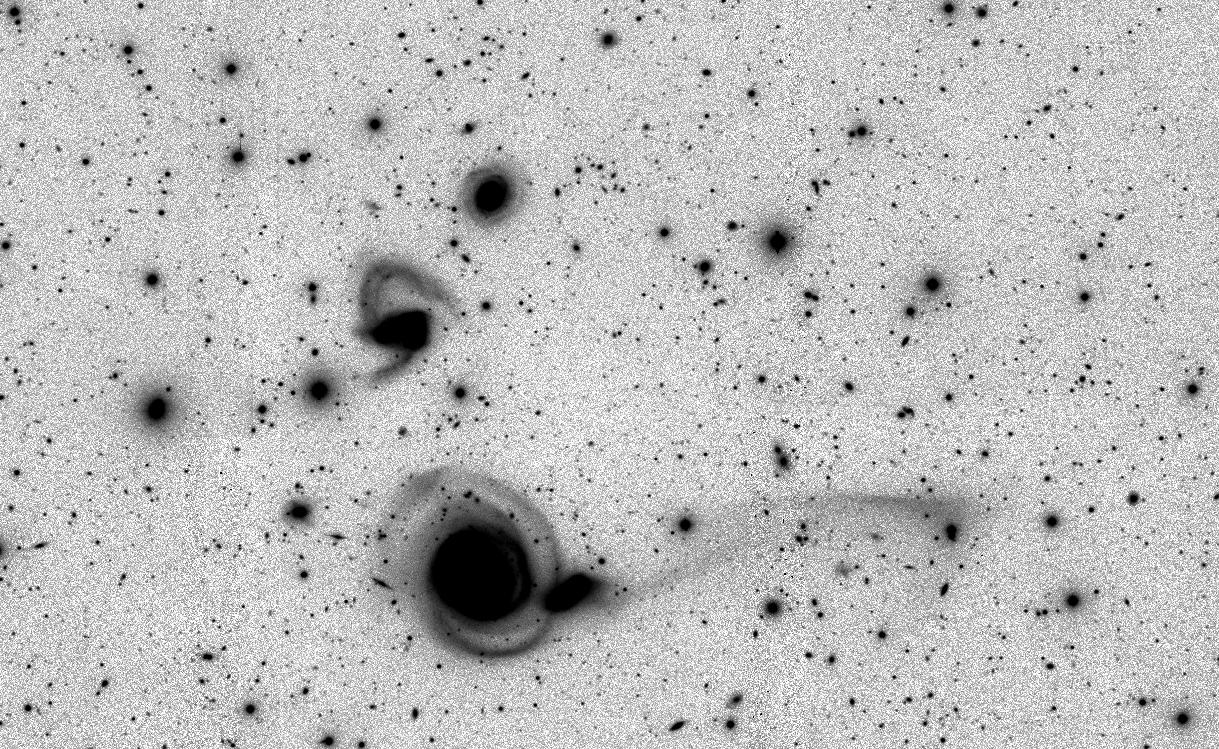
I band Arp 297 from Palomar, in greyscale.
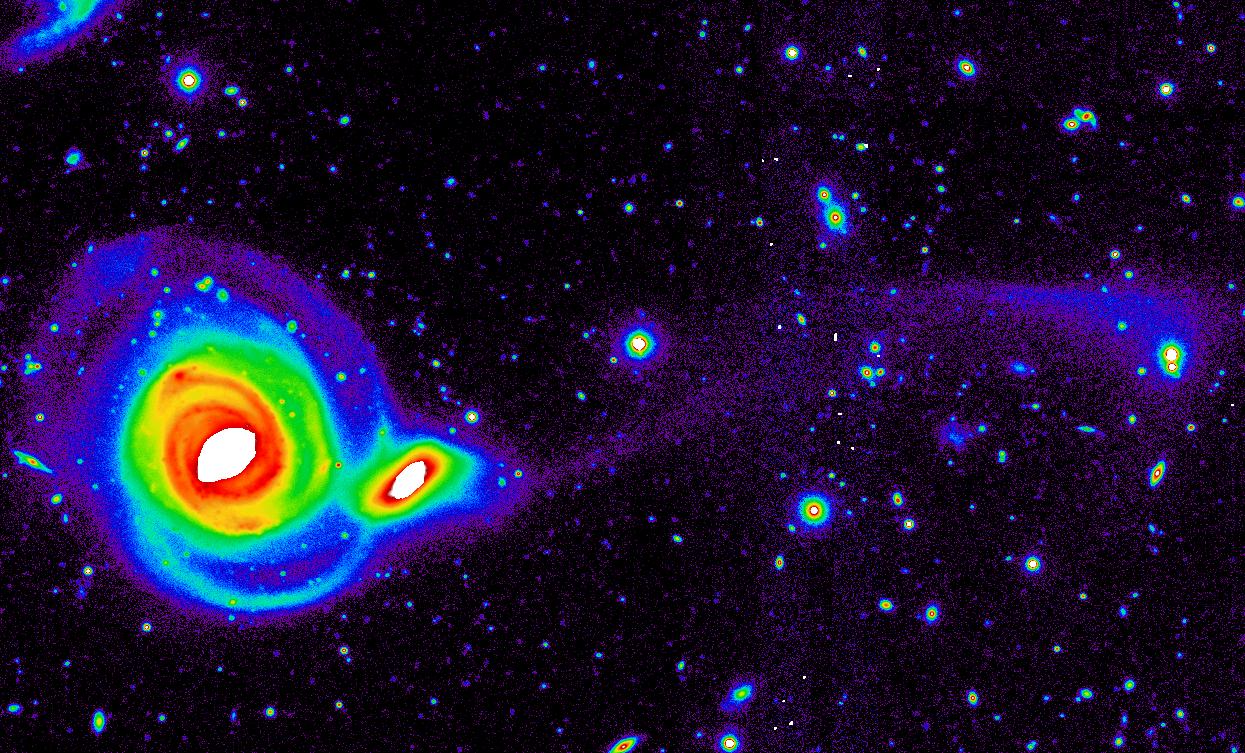
I band of bigger galaxy in Arp 297 from Palomar, in color.
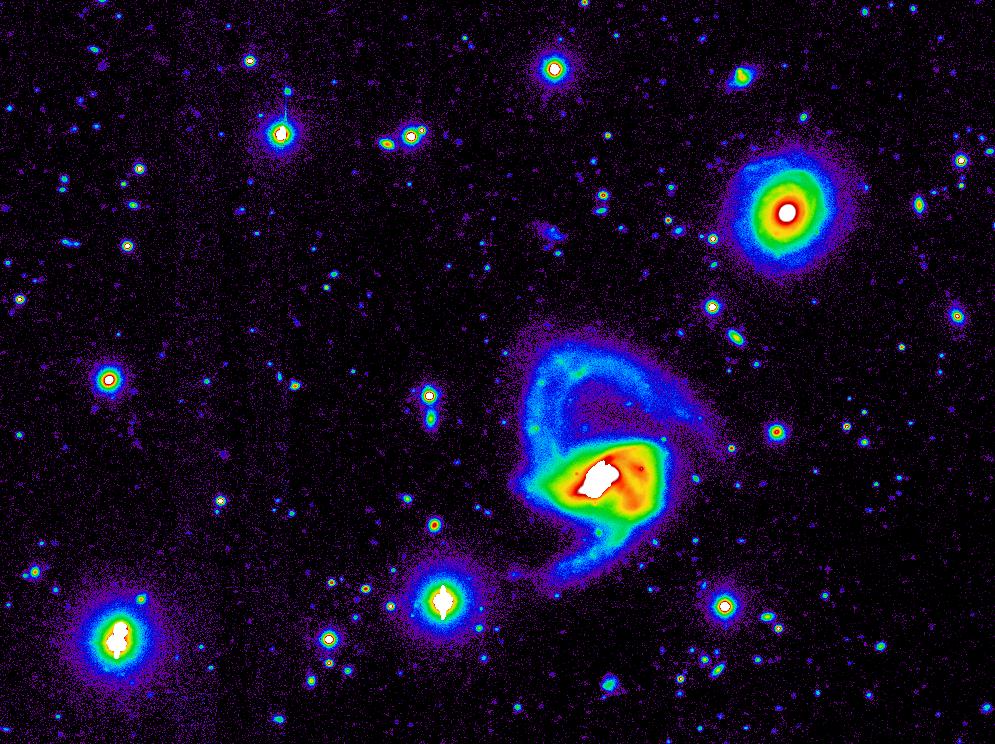
I band of smaller galaxy in Arp 297 from Palomar, in color.
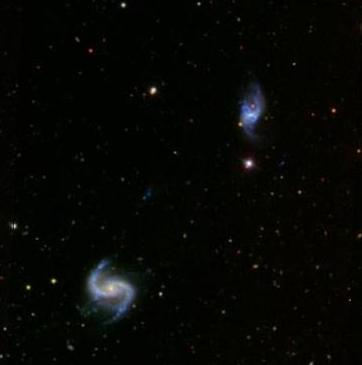
Arp 305. Notice the blue tidal debris
between the two galaxies.
